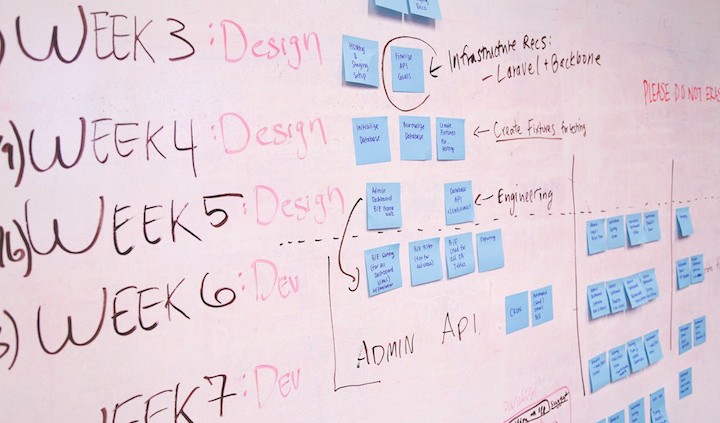Insights from the founder of a 3-year-old bootstrapped platform for free-cycling and reuse
by May Al-Karooni
Founder of Globechain
I always say to anyone thinking of setting up a business that the main ingredients in doing well are having 80% mental strength, 10% business acumen and 10% being crazy – if you survive the first two years without having a nervous breakdown, divorce or bankrupting yourself, you are doing well.
Having come from an investment banking background, I luckily had a few skill sets and knowledge to help me start up Globechain, a reuse platform that connects businesses to charities and SMEs to give and take unwanted items within supply chain network.
I made the decision from a previous experience working in a business with co-founders that this time, I was going to go it alone. I did this for many reasons, but mainly because I was older and wiser, and believed in myself more. And, adding to the challenge, I decided to self-fund.
Should you have co-founders because investors say so?
This is an important stage. For some businesses, you need co-founders that bring to the table certain skills and the balance required to grow and gain investment from investors who want to see a solid and experienced team in place.
However, make sure if you go down the route of working with others you have all the legals in place, and have set the boundaries and expectations. You don’t want your best friend doing a Jekyll and Hyde with you when it comes to splitting profits or shares – egos have no place when growing your business.
Going it alone – take a risk
I decided to go it alone, but I worked solidly for the first two years; long hours with extreme time management as the key. I also made the decision very early on not to pursue funding after spending a few months understanding whether investors would take the risk and that Globechain was not within the traditional criteria for government funding.
I took a leap and saw it was easier to sign-up paying clients for the same money a VC would offer and it paid off.
When I first launched in 2014, Globechain was a new business model that no one understood and didn’t know if it would scale. We had to really do our research, and lead with our vision and innovation. The circular economy is now said to be worth £1tn per year by 2025.
For me, I was wasting my time filling in funding forms and tailoring business plans, so I took a leap and saw it was easier to sign-up paying clients for the same money a VC would offer and it paid off.
If you are going to co-found, do it at the idea stage
You are less likely to regret people coming in when you have done all the hard work and you all start on an equal playing field. Finding someone later down the line will be difficult as everyone will appear to be committed to working with your ‘ready-made, about to blow up global business’ and you are more likely to make mistakes when bringing on board the wrong person for the job.
Understand your market
I spend the first year on my idea of Globechain networking nearly every night, going to tech and sustainability events, startup meet-up groups, IP and trademark discussions, pitching events etc. This helped me network with like-minded people and was also a good way to check out competition (if any) and get feedback on what I was doing.
But after a while, I wasn’t learning anything new so I started looking for alternative ways to keep on top of the industry, and became more selective in the events that i chose to attend.
Have no shame in approaching people you admire or want to speak to.
Network at the beginning, but always remember you are running a business and at some point you need to reduce the networking. Choose the events you go to wisely and ask yourself what you are learning from the people you meet.
Don’t rely on the feedback of friends – they are biased. Get other people’s advice in the industry and your peers in the sector you are in. Have no shame in approaching people you admire or want to speak to. Look for mentors to promote you and believe in your cause.
Investment – do you really need it early on?
How is your sector funded? Can you actually do it yourself and hire good people?
Before you get an angel investor ask yourself why you need them – is it purely a cash injection or do you actually need a mentor or someone with a black book of contacts? £250,000 from a poor investor early in the business can be more damaging than £50,000 from a great investor. It’s not all about the cash amount, a good investor brings experience and contacts that can be invaluable to the growth of a young business.
Many founders of successfully funded startups have mentioned to me they wish they either didn’t fund so early in the process.
Having no funding made me really think creatively about how to grow revenue, who to target and get on board, and what to spend where. Having tight budgets really makes you think innovatively about how to grow, which I believe strengthens the business. After all, it was innovation that made you start your journey in the first place.
And if you do decide to go for funding, put a strategy together from the start and stick to it. Funding is a full-time job. An investor or private equity firm will always be asking: ‘how does this make money?’ Be prepared!
Don’t quit your job too quickly
I kept my job whilst I was developing the idea and funding my first prototype product. This gave me the financial security I needed to save some money and test the waters. Don’t leave your job until you are 80% sure there is demand for your product or service, or you are about to sign your first payingclient – only till I knew the system worked and my pipeline was building and corporates were saying they would pay X did I quit my job.
So, whether you decide to team up or become the lone ranger, make the decision early and fast and always remember to lead, not follow, the pack.
May Al-Karooni is participating in a DTS panel discussion on the topic of ‘Creating An Enabling, Supportive Environment for Social Enterprise Development’ on February 16 at 5pm. She will be joined by John Fitzsimons CEO of Camara Education and Peter O’ Dwyer Senior Business Reporter, The Irish Edition of The Times.
Tickets are available now. Click here to secure yours.
by May Al-Karooni
Founder of Globechain
@Globechain
GET YOUR DTS TICKET TODAY (link)








